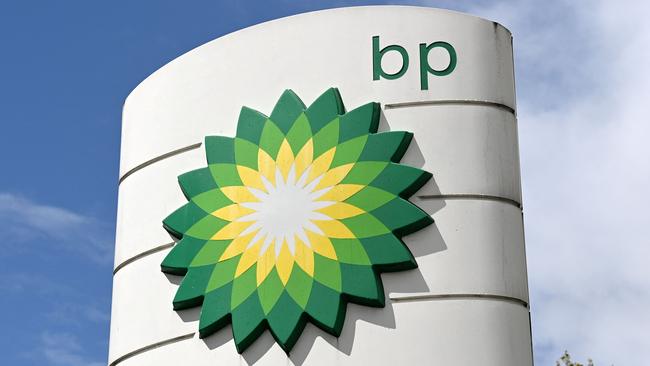BP quandary as Russian adventure comes undone

The TNK-BP joint venture between BP and AAR, formed in 2003, was one of the most lucrative in energy history. BP sank in $US8bn at the start and held out a bucket as $US19bn of dividends gushed out over the following eight years.
Initially, relations with the oligarchs were straightforward. There were board meetings in fun locations such as Cyprus and Paris. “They were very pragmatic, commercial and liked their dividends,” says a source who was involved. Things turned nasty in 2008 when AAR complained that TNK-BP was being run like a subsidiary of BP. Bob Dudley, then BP’s head of Russia, believed his phone was tapped and that he was at risk of being poisoned. He fled the country.
The last straw was BP’s attempt to set up a separate Arctic exploration deal with state-controlled oil giant Rosneft. AAR sued and the relationship fell apart. The Kremlin, sick of the bickering on its doorstep, intervened. Vladimir Putin and Rosneft’s chairman, Igor Sechin, bought out TNK-BP. BP was lucky – at the time, the oil price was well above $US100. BP received cash and Rosneft shares worth $US25bn.
BP was grateful to Putin. In effect, he saved BP in Russia. He was realistically the only buyer and could have put the British company over a barrel of Brent crude. Instead, he paid a full price. The dividends kept flowing from Rosneft. By my back-of-a-vodka-bottle calculation, BP has made about $US40bn from its Russian adventure since 2003 — though its Rosneft stake almost halved in value last week as Putin invaded Ukraine.
Rosneft currently accounts for a third of its oil production and more than half its reserves. Given its financial and strategic importance, you can see why BP has been keen to avoid criticising Moscow. In fact, as well as sitting on Rosneft’s board, Dudley and Bernard Looney have forged cultural ties with Russia. Dudley’s wife runs a charity there helping disabled orphans and Looney is on the board of the Russian Geographical Society, chaired by Putin.
Staying out of politics is now impossible. Even if Rosneft avoids sanctions, Sechin has been sanctioned again, having been whacked already when Russia invaded Crimea in 2014. And there is obviously a moral case against investing in a state that seeks to conquer its neighbours. Doing business with Putin’s Russia today is not unlike dealing with Adolf Hitler’s Germany.
Looney’s green agenda will make the Rosneft stake even harder to defend.
But where does BP go? The other big investor in Rosneft, Qatar, is unlikely to fancy doubling down. A 19.75 per cent stake can’t be trickled into the market. As in 2013, the only buyer is Putin. This time, he might not feel so generous.
BP is trapped in a cage built in the era of laissez-faire globalisation. Other oil companies piled into Russia’s black gold rush, including ExxonMobil — whose then boss, Rex Tillerson, is said to have given Sechin an expensive cowboy’s hat at one point in their long courtship. In 2017, Exxon was fined for violating sanctions placed on Russia in 2014. The mid-noughties was also a boom time for emerging markets equity funds with names such as “Russian Opportunities”.
And who can forget the apogee of Blairite moral relativism, when Russian state-controlled Gazprom indicated it might want to bid for British Gas owner Centrica in 2006? The Labour prime minister made clear he wouldn’t block a deal. Alan Johnson, Tony Blair’s trade and industry secretary, remarked: “Whatever the difficulties and challenges of globalisation, the answers will not be found in the stagnant waters of protectionism.”
That quote seems incredible in the harsh glare of 2022. Protectionism is the order of the day. Globalism has a lot going for it – it can generate big returns for shareholders, lower prices for consumers and, with a fair wind, help build cultural understanding. Left uncontrolled, it can also exacerbate inequalities, lead to Faustian pacts and undermine national security.
Like it or not, it is in retreat. For families that means more inflation as the Ukraine crisis stokes gas prices, tensions with China mangle supply chains and Brexit restricts the flow of labour.
For corporates, the risks of frontier capitalism in unsavoury parts are rising. BP’s quandary should give the asset managers ploughing tens of billions into China pause for thought. The likes of BlackRock and Schroders are cosying up to a regime that persecutes Uighurs and breaks its obligations to Hong Kong. The similarities with Russia 15 years ago are striking. These companies might argue they are exporting Western values as well as importing lucre. Yet BP’s woes are a stark warning. Not only are they in danger of a reputational backlash, they could end up with big lumps of capital trapped behind the new ironcurtain.
The Sunday Times



BP’s big push into Russia was kosher to begin with. The Chief Rabbi of Moscow helped settle a row between the oil major’s then chief executive, John Browne, and four oligarchs. Having spent most of the nineties skirmishing with the Alfa Access Renova (AAR) quartet over ownership of Siberian oilfields, Browne ended up going into business with them.